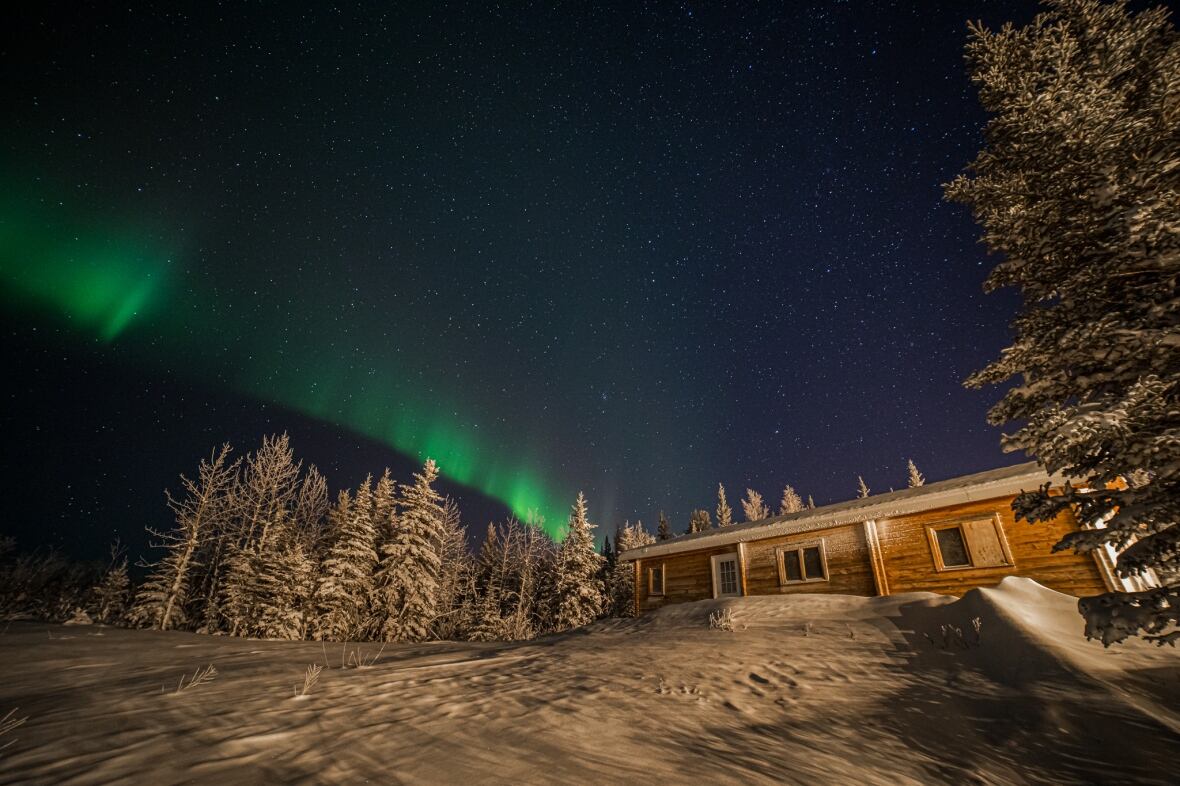Tourism businesses in Hay River, N.W.T., question gov't priorities with new building project
'Who asked for this?' asks one business owner about new building going up at town's main beach

A longtime business owner in Hay River, N.W.T., is raising concerns about a new government-funded building going up at the town's main beach, a place she says has become mostly unusable after floods and fires in recent years.
The territory's Department of Industry, Tourism and Investment says that the new facility will replace a beach attendant building destroyed in the 2022 flood. The new structure will be a lifeguard station and picnic shelter, with a stronger foundation to handle future flooding.
But Jane Groenewegen, who owns Harbour House, a guesthouse just across from the beach, says she was shocked to see construction begin last week without any public notice or signs explaining what was going on.
"We didn't see anything posted. And we're down here quite often," she said. "Whenever there's a development, there's usually a 90-day appeal period where people can comment on what's proposed."
Groenewegen said she's frustrated that there was no opportunity for public input, especially since many other tourism-related sites in the community still need to be repaired after flooding and fire damage.
She said that while the new building may replace something that was lost, it's the wrong time and the wrong place for it. She also doesn't understand why the territory chose a location that has already seen serious flood damage.
"Who asked for this? Yes, it's replacing something, but the timing is off. The beach is a disaster," she said. "The beach is just kind of a swamp now that goes from one end to the other."

Groenewegen said the flooding dramatically changed the landscape. The shoreline has receded, and the sand is now overgrown with poisonous vegetation, such as water hemlock. Dead trees still line the campground.
She said the beach isn't the only area that still needs attention. At Twin Falls Territorial Park, a major tourist attraction located just outside Hay River, the trails and stairs to the falls remain uncleared since the 2023 wildfires, leaving the site in a rough state and unsafe for visitors.
"Our government always says they're so hard up … they got no money for capital projects," she said. "But they got [money] for something that nobody asked for."
'We've had our difficulties'
Darrell Dean, who owns Castaways Cottages and Campground on the other side of town, says the new building going up at the beach isn't a top concern for him, but he agrees that there are more urgent priorities in the community that the territory should address first.
"I'd rather see them spend their money cleaning the beach up, because nobody's going to go there to stay in a swamp," he said. "It just doesn't make any sense."
Dean says he's still trying to recover from the wildfires that burned through his site in 2023, destroying trees, campers, and four cabins.
"We've been hit with a couple years of COVID, and then ... a couple years of flood and then a forest fire. So we've had our difficulties," he said.

Dean said his campground wasn't insured when the fire hit, because there are no fire hydrants in the area, and coverage has become increasingly complex and expensive to get. Without insurance, he had to cover the cost of replacing everything himself.
On top of that, he says one of the biggest challenges he faces is competing with the territorial-run campground, which offers amenities like wi-fi in certain areas, power hookups, and lower rates. He says private operators like himself can't match those prices.
"We can't afford to put that kind of money on infrastructure and then charge that little amount of money," Dean said. "The going rate down south … is anywhere from $60 to $125 a night to stay in a campground. We're well below par on the rates."
For Dean, offering basic services like power is not financially feasible. He estimates it would cost around $150,000 to install electricity at his campground.
Dean said that the territory's infrastructure department has supported him with funding in the past, but large-scale upgrades, such as power installations, remain out of reach for private operators, and he's not aware of any funding program that could cover such high costs.
"[The territory] should be investing money in local tour operators, I think, because it's a plus for everybody," he said.
Ongoing municipal issues don't help either, he said. His road often isn't plowed or graded, and a flood-damaged culvert still hasn't been properly fixed, making it hard for large campers to reach the site. He says it took over a decade of complaints to get consistent road maintenance.

